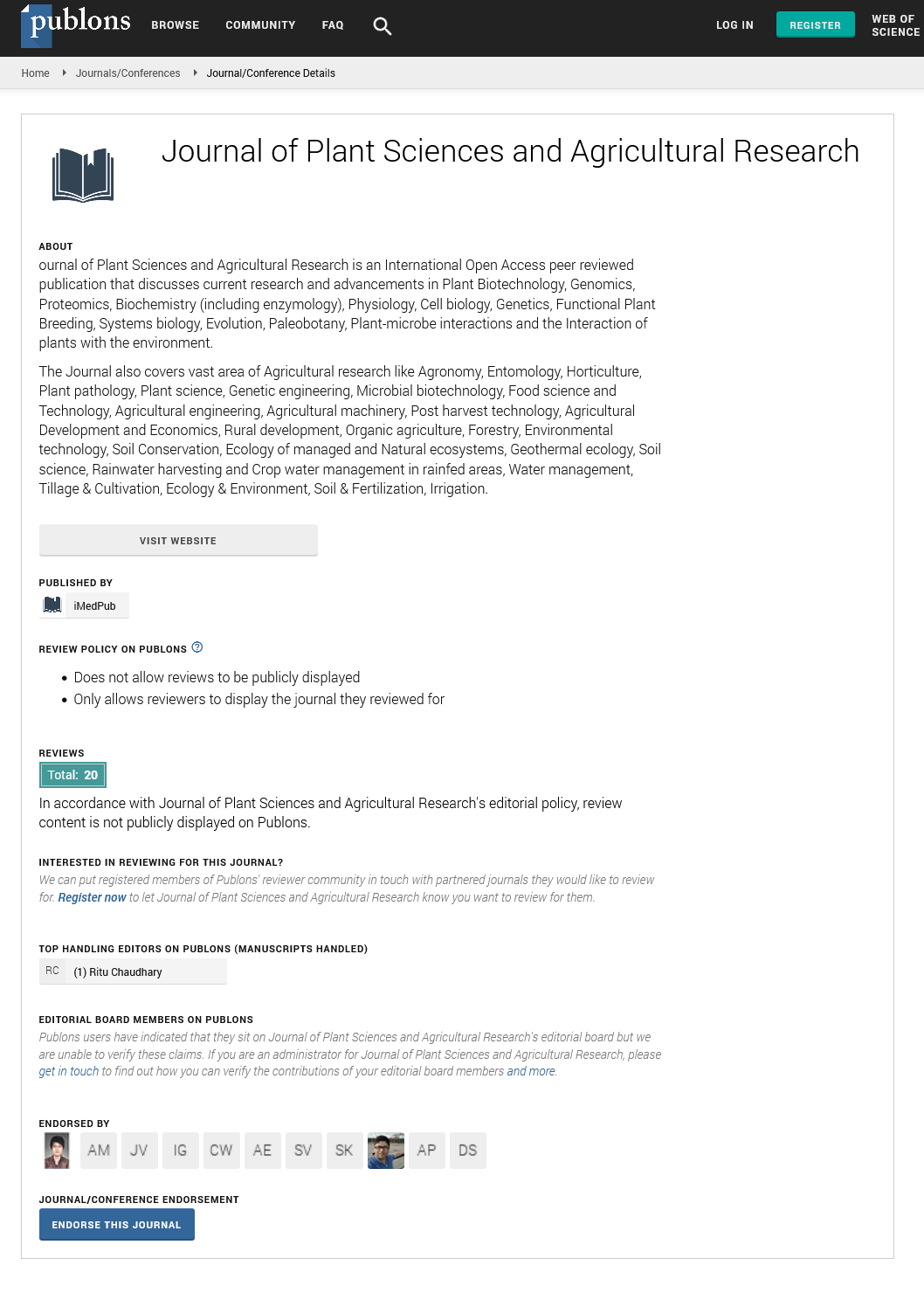Abstract
Toxicological Effects and Consumption Safety of Cowpea Seeds Treated with the Extracts of Plumbago Zeylanica
This study investigated the toxic effects of the plant extract and powder in stored cowpea seeds on the liver and kidney of albino rats. Eighteen albino rats were randomly grouped into six (Groups 1-6) of three animals each. The root bark oil extract of P. zeylanica was administered orally to the animals. Group 1 serve as the control, while Group 2, 3, 4, 5 and 6 received 5%, 10%, 15%, 20% and 25% oil extract respectively for 24 hours. Table 1 showed the kidney activities of urea, total bilirubin, direct bilirubin, and creatinine of the animals treated with 5%, 10%, 15%, 20% and 25% P. zeylanica’s root bark oil extract respectively (P>0.05). The powder and oil extract of P. zeylanica root bark tested on the liver and kidney of albino rat were found to be non-toxic, since there was no significant difference between the control and the animal treated with the powder and the ethanolic oil extracts. This study therefore showed that the powder and ethanolic oil extract of P. zeylanica would provide alternative to synthetic insecticides in the management of Callosobruchus maculatus’s infesting cowpea seeds in Nigeria.
Author(s): Otitoju Lawrence Kunle, Ajatta MO and Alamuoye NO
Abstract | Full-Text | PDF
Share This Article
Google Scholar citation report
Citations : 135
Journal of Plant Sciences and Agricultural Research peer review process verified at publons
Abstracted/Indexed in
- Google Scholar
- Publons
- Secret Search Engine Labs
Open Access Journals
- Aquaculture & Veterinary Science
- Chemistry & Chemical Sciences
- Clinical Sciences
- Engineering
- General Science
- Genetics & Molecular Biology
- Health Care & Nursing
- Immunology & Microbiology
- Materials Science
- Mathematics & Physics
- Medical Sciences
- Neurology & Psychiatry
- Oncology & Cancer Science
- Pharmaceutical Sciences
